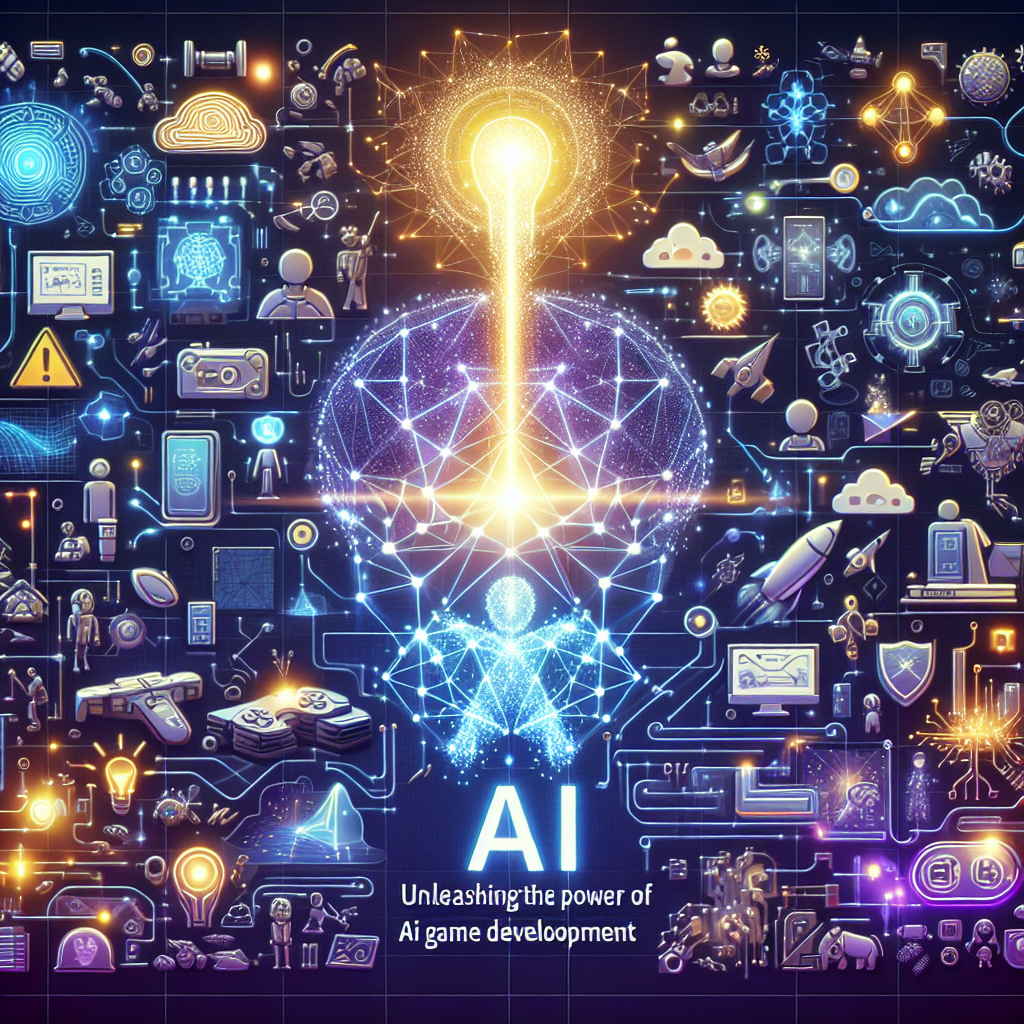Artificial Intelligence (AI) has been making waves in various industries, and the gaming industry is no exception. The integration of AI in game design has opened up new possibilities for creating immersive and engaging gaming experiences. From generating realistic environments to creating intelligent non-player characters (NPCs), AI has the potential to revolutionize the way games are designed and played.
Unleashing the Power of AI in Game Design
One of the key areas where AI is making a significant impact in game design is in the creation of dynamic and responsive game environments. Traditional game design involves creating static environments that remain the same regardless of player actions. However, with the help of AI, game designers can now create dynamic environments that respond to player interactions in real-time.
For example, AI algorithms can be used to generate procedural content for games, such as terrain, buildings, and other environmental elements. This not only saves time and resources for game developers but also allows for the creation of infinitely varied and complex game worlds. Players can explore these dynamic environments and discover new challenges and surprises at every turn.
Another area where AI is transforming game design is in the creation of intelligent NPCs. In traditional games, NPCs are often limited in their behaviors and interactions with players. However, with the help of AI, NPCs can now exhibit more complex and human-like behaviors, making them more engaging and challenging for players to interact with.
AI-powered NPCs can adapt to player actions, learn from their mistakes, and even develop their own unique personalities and goals. This not only adds depth and realism to the game world but also creates new opportunities for emergent gameplay experiences. Players can form meaningful relationships with NPCs, engage in dynamic conversations, and even influence the outcome of the game through their interactions with these intelligent characters.
Furthermore, AI is also being used to enhance the overall gaming experience through features such as adaptive difficulty levels, personalized content recommendations, and real-time analytics. By analyzing player behavior and preferences, AI algorithms can tailor the game experience to each individual player, ensuring that they are always challenged but never frustrated. This personalized approach to game design not only keeps players engaged but also encourages them to explore new gameplay mechanics and strategies.
In addition to enhancing the player experience, AI is also being used to streamline the game development process and reduce costs. By automating repetitive tasks such as playtesting, bug fixing, and content generation, AI allows game developers to focus on more creative and strategic aspects of game design. This not only speeds up the development cycle but also ensures a higher level of quality and polish in the final product.
FAQs:
Q: How is AI being used in game design?
A: AI is being used in game design to create dynamic and responsive game environments, intelligent NPCs, adaptive difficulty levels, personalized content recommendations, and real-time analytics.
Q: What are some examples of AI-powered games?
A: Some examples of AI-powered games include “The Last of Us Part II,” “Red Dead Redemption 2,” “Fortnite,” and “League of Legends.”
Q: How does AI enhance the player experience in games?
A: AI enhances the player experience in games by creating more immersive and engaging gameplay experiences, personalized content recommendations, and adaptive difficulty levels.
Q: What are the benefits of using AI in game design?
A: The benefits of using AI in game design include creating dynamic and responsive game environments, intelligent NPCs, personalized content recommendations, and streamlining the game development process.
Q: What are the challenges of using AI in game design?
A: Some challenges of using AI in game design include ensuring ethical and fair gameplay, addressing bias and discrimination in AI algorithms, and balancing player agency with AI-controlled elements in the game.
In conclusion, AI has the potential to revolutionize the way games are designed and played. By harnessing the power of AI, game developers can create more immersive, engaging, and personalized gaming experiences that push the boundaries of what is possible in game design. As AI technology continues to evolve and improve, we can expect to see even more innovative and groundbreaking advancements in the gaming industry in the years to come.

